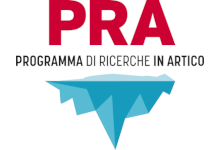Summary
Climate-induced changes in Artic environments are likely to have strong impacts on microplastics distribution and need to be studied. Sink, sources and transfer pathways of small microplastics (<100 µm) in the environment, as well as their potential effects on biota in remote areas such as the Svalbard region are still unknown. Sediments and selected invertebrate species will be investigated to evaluate the entrance of plastic debris into the food web, their role as vectors of contaminants and bacteria and consequent potential risks.
Objectives
MICROTRACER aims at evaluating the distribution of small plastics (<100 μm) fragments in the Arctic environment as a function of the climate change, as well as at evaluating their role as potential vectors of bacteria and pollutants. The research will contribute to identify species indicators and stress markers of plastic pollution at different sites of the Svalbard Islands.
Project Partners
• ENEA Casaccia Research Centre (Rome) – Lab of Biodiversity and Ecosystem Services (Italy)
• University La Sapienza (Rome) – Dept. Of Biology and Biotechnologies - Rome (Italy)
• University of Padua – Dept. of Chemistry (Italy)







 Title: Small MICROplastics bioindicaToRs in the changing ArctiC EnviRonment
Title: Small MICROplastics bioindicaToRs in the changing ArctiC EnviRonment 


